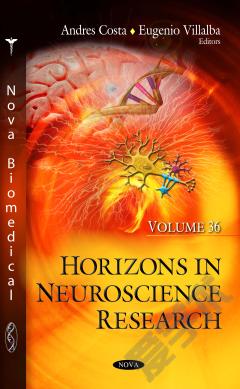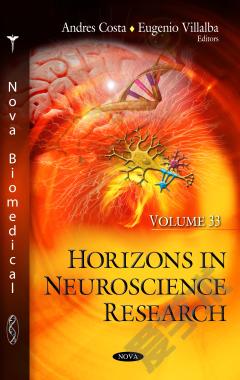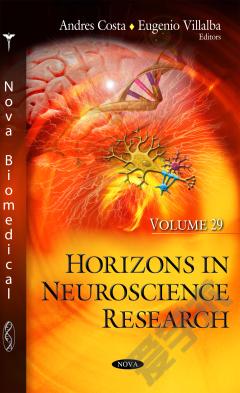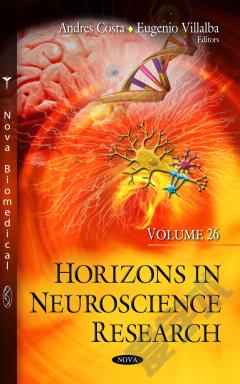Horizons in Neuroscience Research. Volume 36
The corpus callosum is a flat bundle of commissural fibers, beneath the cerebral cortex in the brain, the mild encephalitis/encephalopathy of which is rare in children. In Horizons in Neuroscience Research. Volume 36, the authors report 23 cases in children and summarize the clinical manifestations, imaging features, prognosis, and possible causes and pathogenesis of these patients. Continuing, this compilation describes the anatomy of the sphenopalatine ganglion and the pathophysiological role of the ganglion in different neurological disorders. Various approaches, methods and techniques are discussed, along with their advantages and limitations. Cognitive decline and symptoms of attention deficits, executive dysfunction, and memory impairments are all symptoms of dementia in the elderly. One review focuses on particular frequency oscillations that occur within the affected brain regions which may be used to classify some idiopathic dementias as specific diseases, and could contribute additional information to the clinical data in evaluating age changes. Next, the authors propose that zebrafish may aid in attaining a comprehensive understanding of neural development, neurological disease, and the future treatment of these disorders. They are cost-effective, have a high fecundity, are amenable to genetic manipulation, and are not as susceptible to embryonic lethality in certain circumstances because of gene duplication. Most importantly, their development is highly conserved and they share a similar number of chromosomes relative to both humans and mice, the latter being the most commonly used model system to study neurodevelopmental disorders. Another study focuses on cerebral microcirculation and angioarchitectonics disorders in Alzheimer’s disease (AD) as compared to other neurodegenerative and ischemic diseases. 1122 patients with different types and stages of neurodegenerative and ischemic diseases were examined: 93 patients with different AD stages, 5 AD patients’ direct descendants aged 8-11, and 1024 patients with other neurodegenerative and ischemic brain disorders. Small non-coding RNAs (ncRNAs) represent a diverse group of gene regulatory factors that can post-transcriptionally regulate gene expression in response to various stimuli during brain development and differentiation. The authors discuss the link between ncRNAs, and miRNA in particular, and the regulation of ubiquitine-proteasome pathways and neurodegeneration. The following study aimed to evaluate the effect of implementation intention on naturalistic prospective memory performance in individuals with schizotypal personality features. A total of 48 individuals with schizotypal personality features and 50 participants without schizotypal personality features participated in the study. Diagnosis of occult otogenic cerebrospinal fluid leakage is challenging and the disease may easily be misdiagnosed. In the closing chapter, the authors propose that if a patient presents repeatedly with otorrhea or rhinorrhea with history of head injury, traumatic cerebrospinal fluid leakage should be considered. Additionally, Different surgical techniques should be adopted such as the transmastoid/translabyrhithine approach, or packing the vestibular organs to treat the cerebrospinal fluid leakage based on the source.
{{comment.content}}








 京公网安备 11010802027623号
京公网安备 11010802027623号